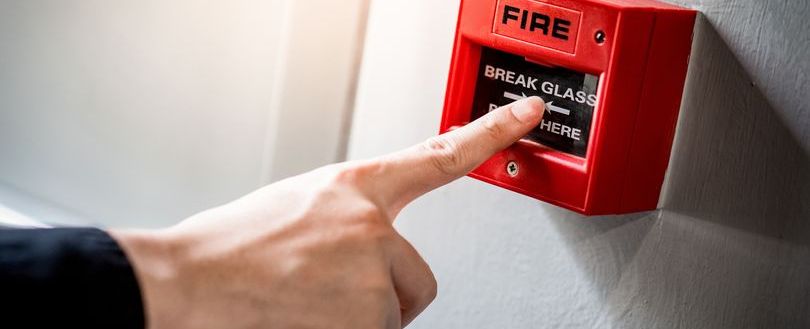
One third of UK businesses failing to test fire alarms in line with the law
Like it? Share it!
26 January 2022
According to a detailed survey conducted by fire safety specialist JLA, 20% of businesses only test their fire alarm systems once every year, while 40% have not given all their staff members training on the common causes of false fire alarms in the workplace.
With employees and customers returning to workplaces and retail stores following the pandemic, JLA’s study highlights that many companies are ill-equipped to deal with the growing risk of fires at their sites, in turn posing huge risks to their employees and customer safety.
The nationally representative survey of 250 business owners has unearthed the fact that over one third of businesses (38% of those questioned, in fact) do not have suitable fire risk assessments in place. Upwards of 80% don’t include details of regulations about fire alarms, and the risks they pose, within their company handbooks.
What’s worse is that almost 40% of the businesses surveyed have not given all of their staff training on the common causes of false alarms and how to mitigate the risks of them happening within the workplace. This is particularly prevalent in restaurants, bars and cafes, where that figure rises to 75%. If businesses don’t train their staff members in fire prevention techniques and Best Practice, the associated risks could be huge.
Damaged reputation, loss of revenue and a decrease in business efficiency are all potential consequences if businesses and employees are not prepared to deal with the impact of a false fire alarm sounding.
Conducted as part of the company’s ‘False Fire Alarms’ campaign, JLA’s research reveals a huge lack of business preparedness in mitigating the risks associated with false fire alarms.
Commenting on this research, Peter Martin (operations director for fire and security at JLA) told Fire Safety Matters: “The events of the past year have understandably caused companies’ attentions to move on towards more ‘business-critical’ decisions. However, with a potential 18 months of fire safety complacency, the risks posed to businesses now, as staff and customers slowly start to return to sites, could be much worse than anticipated.”
Martin continued: “Our survey has revealed worrying statistics around businesses not maintaining their fire safety equipment and not delivering vital fire safety training to their staff. This suggests that, if a fire were to occur, many organisations could be placing their customers and, indeed, their employees under extreme risk.”
Related training
Related news
-
Fire Enforcement Notices Served on Hinkley Point C Contractors
25 February 2026
-
Call for Publication of BS 8414 Test Data
11 February 2026
-
New FIA Environmental Guidance Legislative Overview Published
03 February 2026
Related resources
-
Euralarm-FAQs-re-Environmental-Product-Declarations-EPDs.pdf 1
27 November 2025
-
Fire Risk Assessors Standard Scope of Services
07 August 2025
